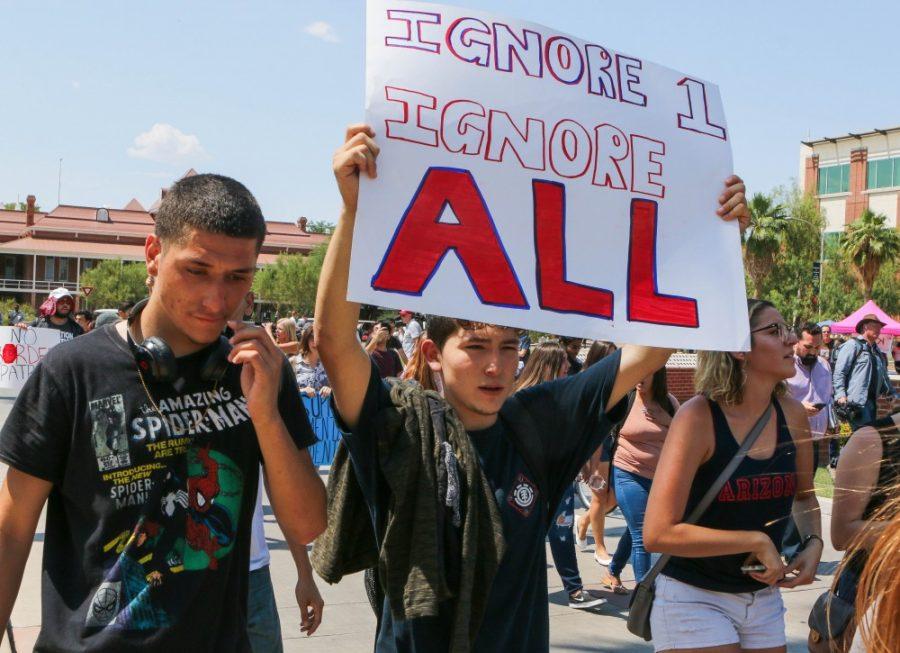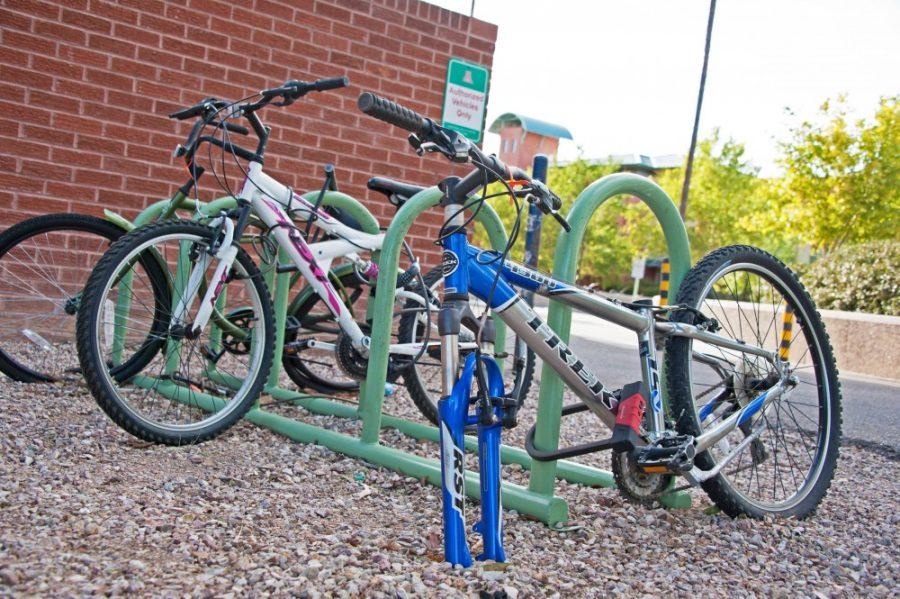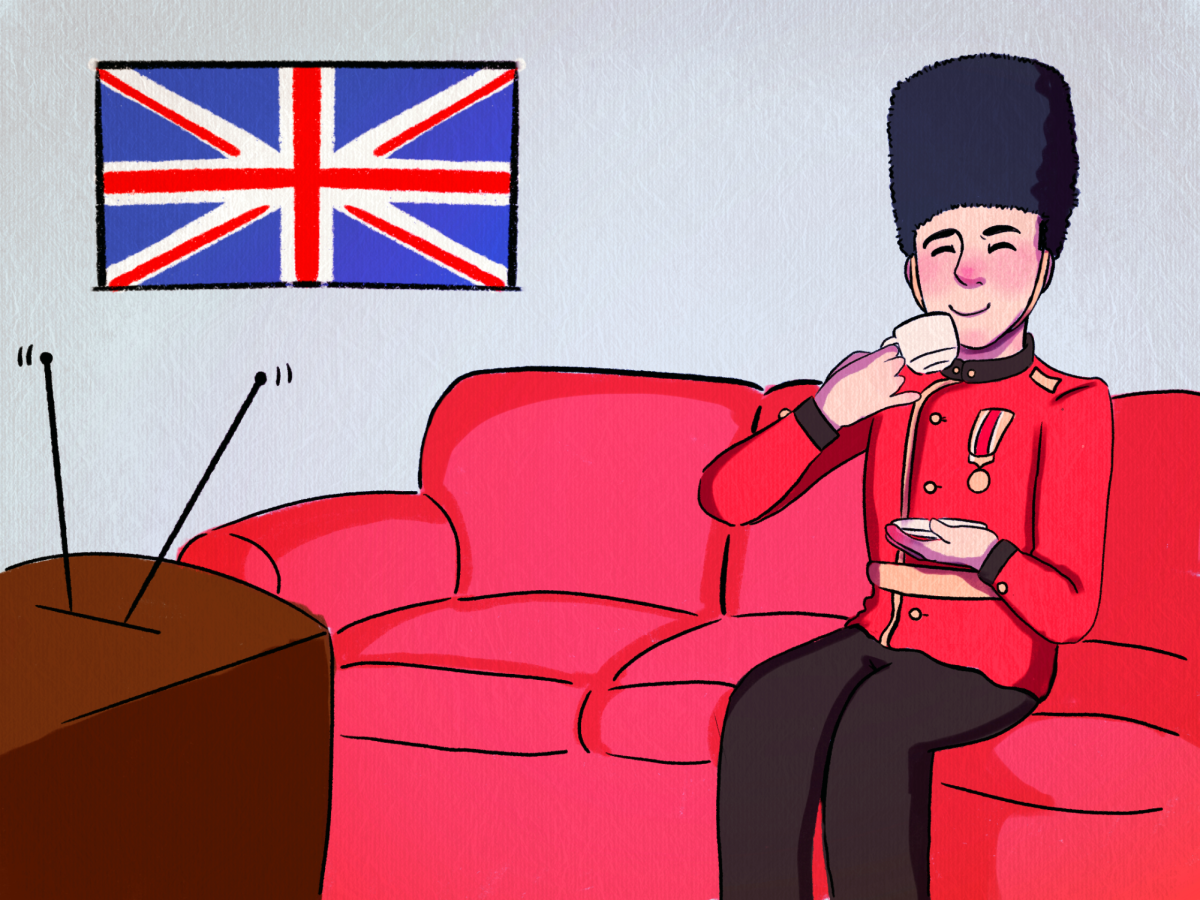Toni Marcheva
The power to secure the fate of 800,000 undocumented children and students should not have been left to Congress (a body of people who have produced little results on any issue as of recent.)
There is a valid legal argument that former-President Obama shouldn’t have implemented DACA at all because only Congress has authority over immigration. For most other issues, I’d probably agree with the constitutional separation of powers.
However, Obama didn’t step in for trivial reasons. Congress was unsuccessful in passing any law to decide what would happen to DREAMers. He designed DACA as a temporary way for these people to step out of the shadows and live their lives while Congress created a better, more permanent act covering all immigration reform.
It has been 5 years, and that still hasn’t happened. Perhaps, President Donald Trump gave Congress a six month deadline to pressure Congress into action. Despite any motive, this move is irresponsible, and probably unethical.
What might happen? Perhaps, Congress might create a beautiful, comprehensive, bipartisan immigration reform with a more successful program for DREAMers than DACA. Great! But maybe, Congress will only haphazardly piece together a program that ends up leaving young undocumented Americans worse off than they are now. Worse, Congress could find itself unable to make anything work, like what we saw with healthcare reform over the summer.
The individuals directly affected by this action do not deserve this uncertainty.
Alec Scott
It’s been the dream of every president since Ronald Reagan to once and for all fix the broken immigration system that punishes and benefits arbitrarily, all in the face of an increasingly more confused crisis of confidence between states and the federal government. President Barack Obama’s attempts to rewrite the immigration laws left liberals unsatisfied and conservatives outraged, but his one attempt at lasting change, the Deferred Action for Childhood Arrivals, or DACA, is now subject to the whims of an entirely different kind of president.
While on one hand, Obama’s refusal to prioritize illegal immigrants who have been brought to the United States while very young has been described by The Hill opinions writer Dale Wilcox as “rewarding bad behavior,” the policy in and of itself is not the problem in our immigration system, and is instead an attempt to fix it. There are almost 800,000 illegal immigrants who benefit from this policy, and revoking their semi-legal status will only further the chaos that is endemic in our political system.
Furthermore, DACA’s GED eligibility requirement only shows that those who are affected by this policy should not be the priority of the government, as they have skills and education that can better allow them to integrate and be welcomed into the wider American community. While I sympathize with arguments for a less wishy-washy stance toward illegal immigration, I don’t think punishing children who have been brought here on no account of their own is a good start.
Eric Roshak
Deferred Action for Childhood Arrivals is a policy originated as a presidential executive order brought about in 2012 during the Obama presidency. Since its conception and establishment into law, the DACA program has seen nearly 800,000 undocumented immigrants benefit from administrative security, with the understanding that these individuals were illegally transported into the United States at a young age. Moreover, under this order these persons, affectionately referred to as “DREAMers,” are granted amnesty in lieu of their unique circumstances.
In the past several days, according to ABC News, the president has received thousands of letters from all degree of American civic and corporate leaders. Among their ranks are mayors, governors, various municipalities and states and business leaders including Tim Cook of Amazon and Facebook CEO Mark Zuckerberg. Possibly the most crucial set of professionals President Donald Trump has received input from are the dozens of bipartisan state attorneys generals.
The legality of the president’s impending decision is the truly critical factor. Objectively, Trump stands on sturdy legal ground in demanding a DACA repeal. As early as August of last year, while on the campaign trail, then-candidate Trump was consistently credited with calling for an end to the program. “We will immediately terminate President Obama’s two illegal executive amnesties in which he defied federal law and the Constitution,” Trump said at a campaign rally in Phoenix last summer. The divisive issue of amnesty for the deferred crosses traditional party policy lines on immigration. According to Politico, Utah Senator and Senate President pro tempore Orrin Hatch, along with Speaker of the House Paul Ryan, have expressed their concern with the President’s intention to scrap DACA, in that assistance for the illegal individuals affected by the ruling is consistent with American moral character and may be beneficial in the long run.
While the expected DACA repeal looms, it enjoys a certain degree of legal safety due to its respect for classical American immigration policy. Essentially, the repeal falls in line with the traditional notion that persons found to be in the United States illegally, regardless of their circumstances, will be removed. The precarious situation that the White House, and particularly Congress, finds itself in is the vague distinction between cut and dry immigration enforcement and proposed investment in the future via DACA individuals. There is some reckoning to be done, and it will be done, one way or another.
Jamie Verwys
This country is founded on the notion that you, alongside your fellow humans, can rise above your circumstances and create a better life for yourself and others. Pie in the sky, Kumbaya notions aside, DREAMers, or young, undocumented minors who have grown up in the United States, have contributed largely to our cultural tapestry and our economy. According to the Center for American Progress, a liberal Think Tank, if DACA ends and all those workers are deported from this country, we can expect to lose about $460 billion from the gross national product over a decade.
We don’t stand to just lose money. We stand to lose students who might contribute something incredible to this country in the future. We stand to lose family, or even to lose heroes. Just look at Alonso Guillen, the DREAMer who died last week as he tried to save victims of Hurricane Harvey in Houston. I’m compelled most by the human element of this issue, but stepping away from my heart a moment, I just don’t see enough clarity for the thousands of people who now face potential deportation and a total upheaval of everything they have known since childhood.
Follow the opinions desk on Twitter









